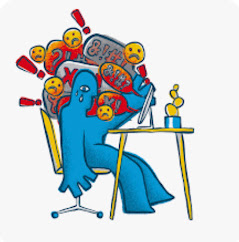Haters Gonna Hate
In the wise words of Taylor Swift, “If you say it in the streets it's a knockout, but if you say it in a tweet it's a copout.” Even America’s number-one pop star knows how rampant haters are on social media and the internet.
 |
| Mashable Taylor Swift performing at the Eras Tour. |
Hate Speech by definition is abusive or threatening comments targeting an individual or group with pressure from society in the forms of writing, speaking, and videography.
This is a grave issue, as those who receive the hate are faced with often serious psychological issues such as feelings of depression and when extreme, thoughts of suicide. Both men and women are bombarded with some form of online hate every day. What you say can be a matter of life or death for someone depending on how the mean comments are perceived.
Often on social media, people freely share their opinions or thoughts about you as a person, another person, or groups in a variety of assorted topics. While freedom of speech and the press is an individual right, it is important to understand that a random flippant comment to one person can be devastating to another person, whether intentional or not. Even though you are not looking at the person you are commenting on, you are still dealing with a person or group of people. We all have feelings and we need to respect the values and morals of others.
 |
| SELMA.com How hate speech impacts a person |
Most people feel comfortable spreading hate behind a screen since they do not have to directly say it to a person’s face. Online haters are free to take as much time as needed to format and perfect their hateful comments.
By sharing vulgar messages on social media, people can mask their inadequacies and hide behind a small phone or computer screen in hopes of evoking fear in their targeted person or persons. Avoiding a face-to-face conversation is an aspect of the scaredy-cat way in which haters share their perspectives online in a derogatory way.
An example of hate speech, through social media, that I am personally aware of, involves none other than my mom defending a hater targeting a particular player on the basketball team. This hater made a very mean and vulgar comment on the Instagram page about the player which was very inappropriate. My mom, who happened to be reading the post on Instagram, came across the comment and immediately defended the player. Other people and the player’s family were grateful the troll had been called out and put in his place.
As the number of social media users increases, many people only communicate in the digital world. Oftentimes, the behaviors of harassers are caused by trying to make oneself feel more important in the societal pyramid.
A momentary lapse of good judgment when a hate-filled comment is posted can come back to bite you when you least expect it. Especially when applying for a job, one of the things that potential employers look at is your social media footprint. Your online reputation and presence are clearly important. What you post and say online matters, because once it is posted, it is out there forever.
Misinformation increases due to online hate. This specific type of communication can be spread at no cost to the individual and can have detrimental effects on a person and their mental health.
 |
| TikTok Social Media influencing hate speech |
America is a democracy, and each person has the individual constitutional right to freedom of speech and expression. Unfortunately in this day and age, the lines between the two have been blurred. A current example is the protests against Israel on many college campuses. Does a right to free speech end, when the speech is calling for the destruction and death of others. Finding a solution to protect messages and the freedom of speech is critical to the survival of a civilized society.
One out of three adults have experienced some form of online harassment. This is an insane statistic to think that much hate is spread across the internet. If you choose to spread hate online to make yourself feel important, then you are not empowered, you are a coward.
 |
| The United Nations Impacts of hate speech towards mental health |



No comments:
Post a Comment